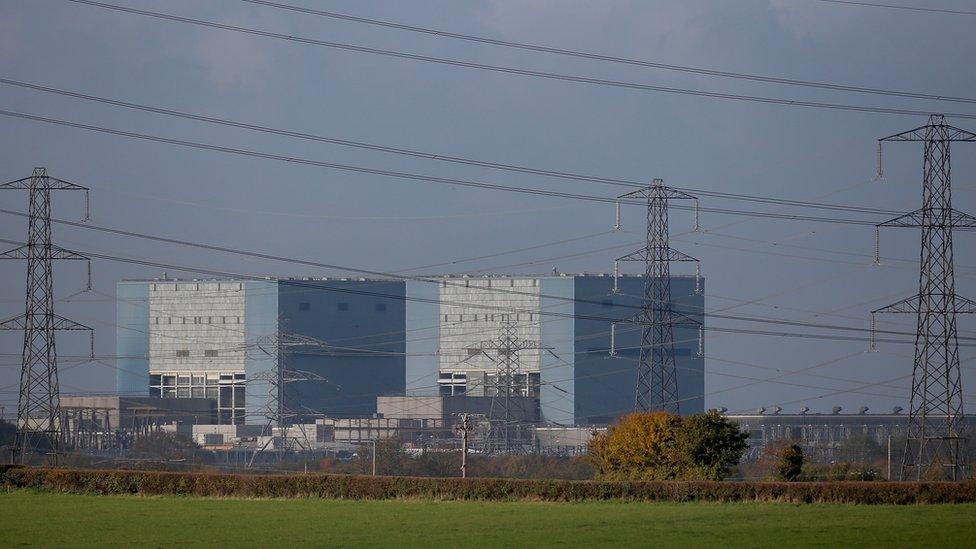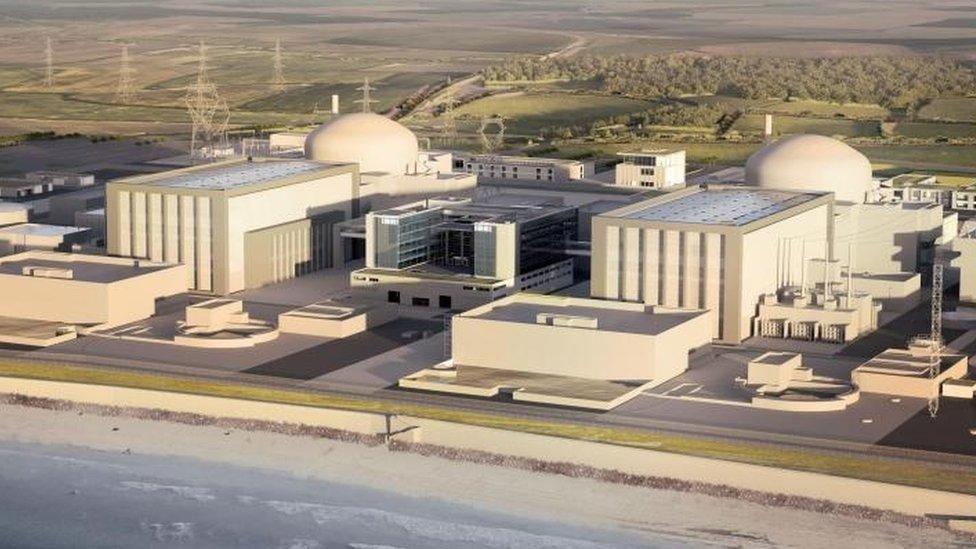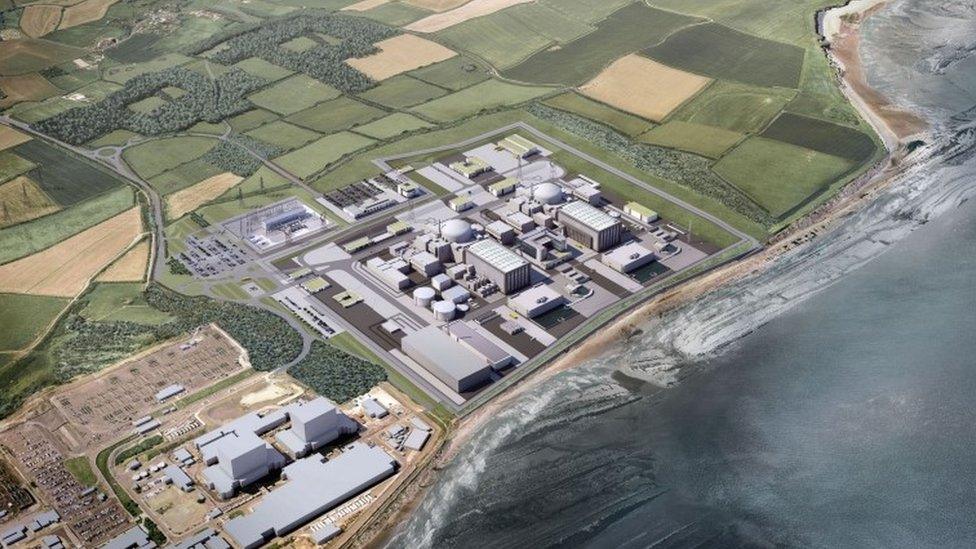Hinkley Point 'still worth the cost' as price tag soars
- Published

Hinkley Point in Somerset already houses two nuclear reactors
The government remains committed to building a new nuclear power station at Hinkley Point in Somerset, the new chancellor has said.
Philip Hammond's vow came despite the rising potential cost to the government of the electricity it will produce, according to the National Audit Office, external.
He said Hinkley was vital to a strong economy and still worth the cost.
The new power station was initially supposed to cost just £6bn, but has more recently been estimated at £18bn.
As part of the 35-year deal signed with France's EDF in 2013 to build the plant in Somerset, the government agreed to pay £92.50 for each megawatt hour of electricity.
Wholesale energy prices have fallen since that price was agreed, which meant the government must now make up the difference.
The NAO estimated that future top-up payments would rise from £6.1bn to £29.7bn over the length of the contract.
The spending watchdog's report came less than a week after an Infrastructure and Projects Authority assessment published by the Department of Energy and Climate Change put the potential cost of Hinkley at £37bn.
A Department for Energy spokesperson said that the revised estimate would not mean higher bills for consumers.
"Hinkley will generate enough low carbon electricity to power six million homes and around £10 from consumer bills will pay for it once it is up and running," she said.

Analysis: John Moylan, BBC industry correspondent
How can the cost of Hinkley on our electricity bills remain at about £10 when the huge subsidy is soaring? It's because we will pay for the plant in two ways: the wholesale cost of electricity, and the cost of the subsidy.
When the wholesale cost rises, that subsidy will fall. If it falls, as the NAO report suggests, the subsidy will rise.
But the overall cost to consumers' bills will remain at around £10, says the government, as it is based on the £92.50 per megawatt hour "strike price" that the UK has agreed to pay EDF for power from Hinkley Point C.
The Government says that the system protects consumers from fluctuating wholesale prices. But it is likely to face mounting criticism in future years if projections of lower wholesale energy prices prove to be true.

The NAO said: "Supporting early new nuclear projects could lead to higher costs in the short term than continuing to support wind and solar. The cost competitiveness of nuclear power is weakening as wind and solar become more established.
"The decision to proceed with support for nuclear power therefore relies more on strategic than financial grounds: nuclear power is needed in the supply mix to complement the intermittent nature of wind and solar."
Richard Howard, head of energy and environment at the think-tank Policy Exchange, said: "The subsidy model used for Hinkley Point C ... involves a significant risk transfer from power generators to government, with consumers ultimately picking up the tab."
EDF, which is controlled by the French government, is yet to fully commit to building Hinkley Point as the final cost continued to rise. Neither has it outlined how it would fund the project.
Emmanuel Macron, the French economy minister, said in April that France was "completely committed" to building the power plant.
EDF's finance chief resigned over the cost in March and French energy minister Segolene Royale has also said it should be delayed.
- Published17 April 2016

- Published22 March 2016
